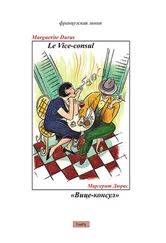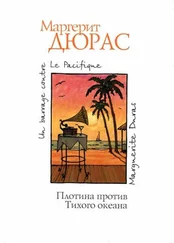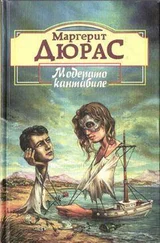When Maud’s first encounter with George is discovered by her family and their host family in the region, who are also upset by her scandalous absence during an entire day, her shame is intensified as the others “devour her pitilessly with their gaze” while she tries to eat her evening meal, suggestive of Anne Desbaresdes’s silent ordeal during the lavish reception in Moderato cantabile . When Maud is with George for what he thinks is the last time prior to her leaving, he kisses her, but “almost without desire,” because of her lack of commitment. “Their joined lips were cold, but they preferred this contact to that of their eyes, which fled from each other.” This, too, reflects the lifeless parting moments of Anne and Chauvin in their last encounter in Moderato cantabile . The final reconciliation between Maud and George, however, appears to be unique to this beginning work, where love brings about the kind of resolution that will rarely, if ever, be reproduced in later works.
Turning now to questions of style, the descriptive qualities of The Impudent Ones are principally linked to place. Situated in the southwest of France, near the town from which the author drew her pseudonym, The Impudent Ones reveals the profound attachment of Duras to the land. Images of hills, valleys, rivers, woods, and fields captivate the reader through their beauty and accuracy in relation to the region where Duras spent relatively brief but memorable periods of her childhood and youth.
Nature is not merely portrayed in general terms, but the precise names of birds, trees, and various types of vegetation create a strong sense of local color that draws the reader into the richness of the landscape and the atmosphere of the passing seasons of this region Duras loved: “Because of the recent rains, the grass was thick and luscious, and the air gave off the fragrance of sap. Thrushes flew low over the fields and the velvety whir of their wings made a rustling noise. From the tops of the tall poplar trees of the Riotor, goldfinches were singing, infusing the azure sky with their voluptuous, triumphant notes.” Richly figurative descriptions of evolving moments of the day and night also contribute to a lyrical effect, as do the multiple depictions of weather—unbearable heat, pounding rain, limpid skies—while all the senses are engaged in the production of a very natural and convincing backdrop to the story.
Although Duras does not appear to return to the same kind of elaborate background description in her later works, her sensitivity to nature and to transitions in time that affect human experience continues to undergird her writing. In Moderato cantabile , for example, the glorious arrival of evening, with all its resplendent colors, contrasts with the suffocating atmosphere of the piano lesson in the first chapter. Nature, the embodiment of freedom, stands in opposition to the sense of imprisonment created by inner spaces and the impositions of society. While the young pupil, dominated by his teacher, can only glimpse the wondrous transformation of the evening sky outside, other children, unimpeded, stand motionless on the quay, awed by the breathtaking hues of the sunset. In The Impudent Ones , Maud is just as moved by evening’s approach, even though it fills her with very divided emotions. “Maud wondered what this gentleness that arose with the evening was, so hard on her heart.”
Despite the rift between nature’s perfection and her unhappy inner state, she is nevertheless attracted to the natural environment, to the point of leaving the door of the family estate open to the nocturnal sounds, scents, and breezes that invade her bedroom at night and unite her with the outdoors: “Maud fell asleep as soon as the breeze died down of itself in the forest… but she woke up abruptly as soon as a fresh breath of wind carrying all the surrounding fragrances returned… It had swept the great depths of the valley, carrying with it, as a result, the scent of bitter algae and decayed leaves.”
The ability of nature to penetrate the characters’ lives is also evidenced in The Lover , where the young girl crossing the Mekong, symbol of the change she is about to undergo, is strangely sensitive to the hazy light over the water and the river’s blurry shores, even as she feels the current flowing noiselessly beneath her like the blood in her veins. Whether revealed in the light of dawn or the dark blue of night, the use of description drawn from nature to create a compelling ambiance and enhance the meaning of the text has always enriched Duras’s writing, from her first novel onward.
Other points of comparison, both major and minor, are easily discernable for readers familiar with Duras. For example, it is George, Maud’s lover, who pays the debt owed by the family at the end of the first novel, and the Chinese lover who pays the family’s debt at the end of The North China Lover . The interplay between various works obviously provides much scope for reflection and analysis. Like a sapling sending out its shoots in multiple directions, the words, characters, and essential components of this initial novel continue to expand and produce an abundance of interrelated themes, as the literary production of the author advances.
In every case, the creative elements related to Duras’s life, and the way in which she interprets and reframes them, contribute to the extraordinary unity of all of her work, including novel, theater, and film. The Vice-Consul , later filmed as India Song , exemplifies how characters from earlier works may later take on new and sometimes bolder characterizations, such as the beggar-woman’s harsh, unfeeling mother and the enigmatic vice-consul, whose violent, anti-social behavior in both the novel and film evoke that of the older brother depicted in Duras’s works from the beginning. Hence, it would be difficult to overestimate the role of The Impudent Ones in paving the way for a fuller elucidation of the entire corpus of Duras’s work.
A further factor shedding light on the subject of Duras’s narrative style is the reception of the novel at the time of its publication. Submitted as La famille Taneran in 1941 to the large French publisher Gallimard, it was read and appreciated by the highly esteemed Raymond Queneau, even though the publisher turned it down, citing mainly a lack of cohesiveness in the writing style and plot. In 1943, despite noting similar weaknesses, the publisher Plon decided to bring out the novel as Les impudents . Not only was the title changed, but it was at this point that Marguerite adopted the pseudonym Duras, taken both from the novel’s setting and from the region most connected in her mind to her father, and becoming her name for all posterity.
Although the novel did not create much of a stir when it was published, it was well-received by critic Ramon Fernandez, who discusses it very positively in the newspaper Panorama , in May 1943, at the time of the novel’s publication. He lauds the author for her skillful handling of the characters, her excellent mastery of their psychology, and the creation of an intense and tragic atmosphere. He finds that the main character’s inner thoughts express a rare candor, while her feelings and actions seem both strange and natural. The novel abounds, he claims, in astute impressions of both the landscape and the human soul, to which the reader may have been oblivious, but can relate at the same time. Fernandez concludes that once the author has honed her writing style, which sometimes wavers, she will have perfected her unquestionable talent.
As Duras gained greater recognition for her following works, she herself became aware of the shortcomings of her first novel and began to omit it when referencing her work, resulting in the novel’s disappearance from the bibliographies of her works for quite some time. As her style evolved, however, and she became more affirmed as an author, eventually gaining acclaim as the award-winning author of The Lover , readers began to take an increased interest in Duras’s first novel, long neglected, and it was republished by Gallimard in 1992.
Читать дальше









